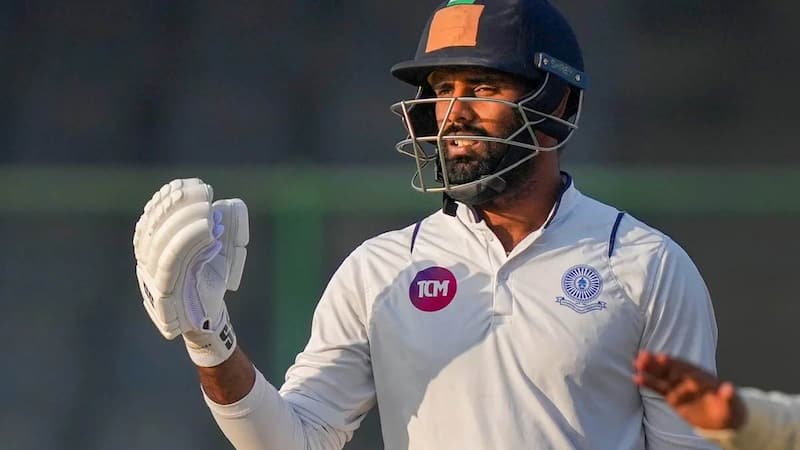
Cricket Country Staff
Editorial team of CricketCountry.
Written by Cricket Country Staff
Published: Feb 29, 2024, 05:40 PM (IST)
Edited: Feb 29, 2024, 05:40 PM (IST)

In a recent development, Hanuma Vihari, an out-of-favor Indian cricketer, has raised concerns about alleged mistreatment by his home state cricket association, Andhra Pradesh. Vihari claims that he was asked to resign from his captaincy position following an altercation with a teammate, whose father is a prominent politician. The incident reportedly occurred when Vihari “shouted and scolded” at the politician’s son during a match. To support his claims, Vihari has shared a signed letter from his teammates, expressing their support for him and denouncing the actions of the state unit president.
However, KN Prudhviraj, the politician’s son, has refuted Vihari’s allegations, accusing him of seeking sympathy by fabricating the incident. The Andhra Pradesh Cricket Association (ACA) has also contested Vihari’s claims, stating that players were coerced into signing the letter of support.
ALSO WATCH:
In a recent interview with India Today, Vihari provided further clarification on the incident, revealing his perspective on how the controversy unfolded. According to Vihari, the altercation arose when he reprimanded a player who was not supposed to be in the dressing room as per the rules. The player, feeling aggrieved, complained to his father, leading to a chain of events that resulted in Vihari being removed from his captaincy role. Despite the setback, Vihari continued to play for the team, driven by his love and respect for the game. However, once the tournament concluded, he decided to speak out about the incident to set the record straight.
Vihari disclosed that the incident occurred a couple of months ago and described the emotional toll it took on him. As a professional player with a long-standing commitment to the game, Vihari found it challenging to endure the situation while prioritizing the team’s interests. However, he felt compelled to address the issue publicly to uphold his self-respect and integrity.
Amidst the controversy, reports emerged suggesting that the ACA had accused Vihari of fostering a “class difference” within the team during his captaincy tenure. Allegations of misconduct, including the use of foul language, were also leveled against him by some players. These accusations further fueled the ongoing dispute between Vihari and the cricket association.
The dispute between Vihari and the ACA underscores broader issues related to player-administration relations and the handling of internal conflicts within cricket teams. Such incidents shed light on the challenges faced by players, who often find themselves caught between their passion for the game and the complexities of team dynamics and administrative decisions.
In Vihari’s case, the incident highlights the delicate balance between asserting leadership authority and maintaining harmony within the team environment. While Vihari asserts his commitment to upholding discipline and team rules, the fallout from the altercation underscores the potential consequences of clashes between players and administrative figures.
Moreover, the involvement of external factors, such as the political connections of certain players, adds another layer of complexity to the situation. The influence of external pressures on team dynamics and decision-making processes underscores the need for transparent and fair governance within cricket associations.
As the controversy continues to unfold, it raises important questions about accountability, transparency, and conflict resolution mechanisms within cricket organizations. The manner in which such disputes are addressed and resolved will have implications not only for individual players like Vihari but also for the broader integrity and credibility of cricket administration. Moving forward, it is essential for cricket associations to foster open dialogue, promote mutual respect, and prioritize the welfare of players to ensure the continued growth and success of the sport.
This website uses cookies so that we can provide you with the best user experience possible. Cookie information is stored in your browser and performs functions such as recognising you when you return to our website and helping our team to understand which sections of the website you find most interesting and useful.
Strictly Necessary Cookie should be enabled at all times so that we can save your preferences for cookie settings.
If you disable this cookie, we will not be able to save your preferences. This means that every time you visit this website you will need to enable or disable cookies again.
